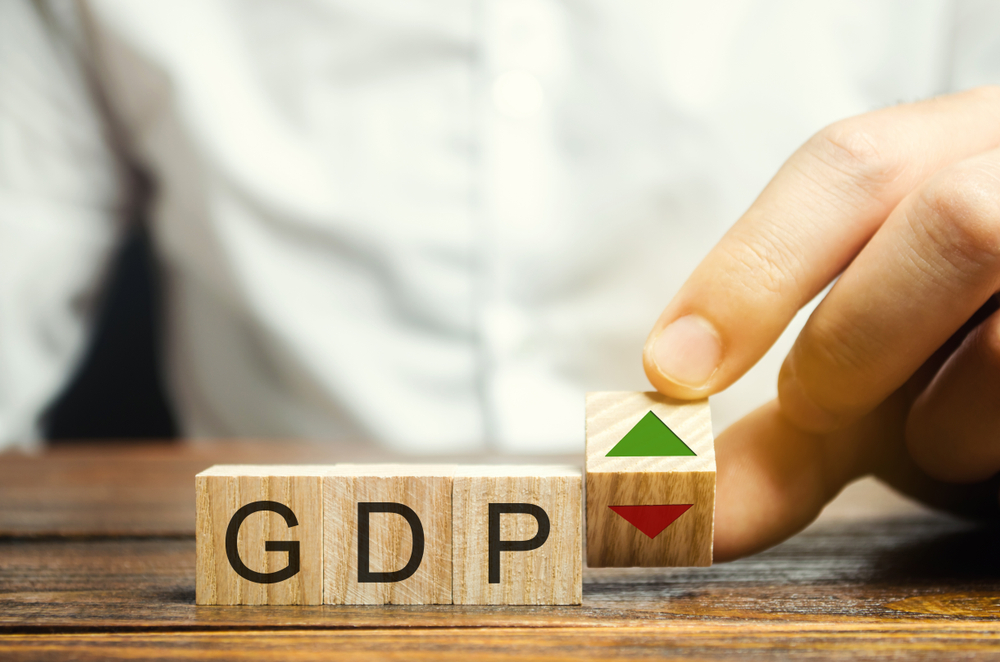News
UK economy stood still in fourth quarter amid recession fears

The UK’s gross domestic product (GDP) stayed largely flat in the final quarter of 2022, as a slight uptick in construction output was offset by a decline in production.
Data from the Office for National Statistics (ONS) indicate that the economy showed no growth in the quarter from October to December, after having fallen by an estimated 0.3% in the period from July to September.
Gross domestic product measures the value of goods and services produced in the UK. It estimates the size of, and growth in, the economy.
Still lower than pre-Covid
The level of real GDP in the final quarter of the year is now estimated to still be 0.8% below where it was before the Covid-19 epidemic began in 2019, although the country’s GDP is estimated to have risen by 4.0% over the course of 2022, much less than the 7.6% increase in 2021.
Growth of 0.3% in construction was offset by a 0.2% decline in the production sector.
Other factors that influenced the data included soaring prices for household goods and large price movements in internationally traded goods and services, the ONS said.

Why Life Insurance Still Matters – Even During a Cost-of-Living Crisis
Sponsored by Post Office
Strikes and inflation
The services sector slowed to flat output during the fourth quarter, largely because of declines in the education sector and in the transport and storage sub-sectors including postal and courier activities and rail transport – two industries beset by workers going on strike.
Richard Carter, head of fixed interest research at Quilter, was not comforted by the figures: “This morning’s GDP statistics show the UK has narrowly avoided the forecasted recession.
“While the numbers may appear positive for now, overall the economy is flatlining and it is difficult to see that changing in the short-term. As such, we are still likely to be in a recession at some point during 2023 – which is still expected to be long and shallow – so these figures do not provide a huge amount of comfort.
“The Bank of England may well feel vindicated that the economy is so far surviving interest rates, but the toll on households has still been huge due to rising energy bills and high inflation.”
Murky water ahead
Susannah Streeter, head of money and markets at Hargreaves Lansdown, added a hint of optimism: “Although a distinct chill descended in December, as bad weather, strikes and more painful price hikes blew in, the downturn wasn’t deep enough to push Britain into recession.
“There is still a chance the economy will still suffer two back-to-back quarters of negative growth this year, but the murky stretch of water ahead is set to be shallower and less lengthy than predicted in the autumn when the country was also wracked with financial instability.”
She suggested that the UK was heading not for a recessionary return to the 1970s but rather “an early noughties-style period of stagnation.” If markets like the FTSE100 can keep investors happy, she said, the positive sentiment could “keep buoying the confidence of British consumers and companies in the months ahead.”
Call for pay rises
Paul Nowak, general secretary of the Trades Union Congress (TUC) placed the blame on the GDP figures squarely on the government: “Our flatlining economy is a problem made in Downing Street. By holding down pay, the Conservative government is holding back economic growth. It forces families to cut their spending. And it means that businesses have fewer customers.
“The Chancellor and Prime Minister must get us out of this doom loop. They must put pay rises at the heart of next month’s Budget. It’s the fuel in the tank that our economy needs to get moving again.”